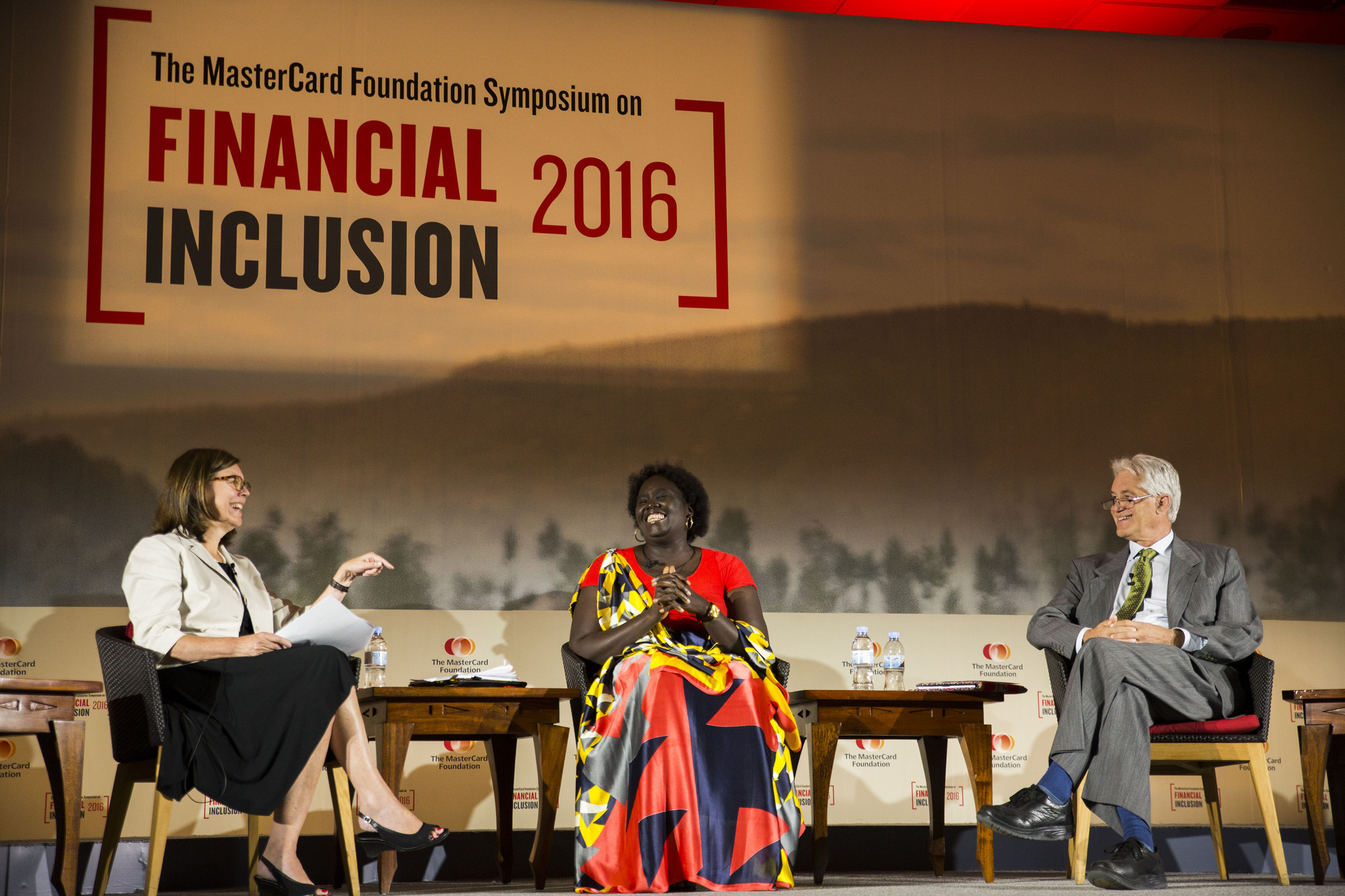
Client Centricity to Drive Financial Inclusion: The Road Ahead
In October, we concluded our fourth annual MasterCard Foundation Symposium on Financial Inclusion (SoFI2016) in Kigali, Rwanda (See highlights of SoFI2016 here). With attendees and speakers from organizations like the World Bank, Mercy Corps, M-KOPA Solar and others, we learned first hand from leaders who are creating innovative solutions to the challenge of financial inclusion and having a positive economic impact across Africa. Better yet, these solutions are singularly consumer- and audience-focused, affirming the business case for client centricity.
There has been significant headway in expanding financial inclusion across the world, yet we have a long way to go. Today, roughly two billion working-age adults worldwide, many in Africa, still lack access to formal financial services. This means two billion people lack the ability to save, send or borrow money easily, safely, and cheaply. And that means they remain unable to improve their livelihoods – and the lives of those close to them – in any significant and sustainable way.
At the Symposium, we heard from successful financial service providers (FSPs) that, in order to see adoption of their products and services, they were led to demonstrate a deep understanding of the complex lives that poor people lead. This special consideration is needed to design financial products and services that will meet their needs. These FSPs also told us that, counter to some thought, client centricity is not a drag on the bottom line. Rather, over the long-term, it is a motor to improve it.
So what’s stopping the financial services sector from being more client centric towards people living in poverty? Some say limited resources. At SOFI2016, we heard that the solution to limited resources is partnerships. Strategic partnerships are necessary and will need to become more common, because no firm, bank, mobile network operator, or fintech startup, will have enough capital or intellectual resources to strengthen client centricity across all customer segments in all markets. But these partnerships must be a win-win, with all partners leveraging one another’s strengths, without capitalizing on one another’s weaknesses.
It will not be easy, or straightforward, especially given the nascent nature of some African markets, compounded by culture chasms between conservative banks and more free-wheeling and daring fintech firms emerging in the marketplace.
Data, too, has a critical role to play to ensure the implementation of client-centric products, services, and policies. FSPs and other financial entities must know exactly who their clients are — not simply their occupation or income, but their spending habits, their emotional behaviors, and their long-term financial goals. One has to “get inside the mind” of the customer, as noted by keynote speaker, author and Princeton professor, Eldar Shafir.
To that end, greater use of data to fully understand nuanced client needs, desires, and expectations will increasingly become the norm. This creates another push-pull dynamic around the ways in which large banks and telecom companies gather and utilize that data, and how the privacy of the consumer needs to be protected. Firms will make trade-offs between the information and insights they can derive from big data and the need to protect private customer profiles.
A conversation about privacy inevitably leads to one about trust. Indeed, an overarching theme of trust emerged from this year’s Symposium. As financial services become increasingly available to underserved populations, trust will be critical to uptake and retention. A client must feel that she or he can depend on a product or service being offered — that it will be beneficial in the long run, and that usage won’t cost more than any reasonable alternative.
These takeaways from the Symposium should resonate with all FSPs. Those that do not make the effort will be missing out on the opportunity to increase market penetration. According to a majority of our 2016 SoFI panelists, client-centric practices will remain the driver of greater financial inclusion and bottom-line success for financial service providers.
At the Symposium, we reaffirmed that the work we’re doing collectively is not about us — it’s about those we serve. It’s about enabling access to solar power, for instance, to alleviate the need to burn firewood or kerosene, or providing a safer place to save money for the long-term, or opening up fair lines of credit to small businesses seeking to grow. With a renewed focus on the customer, committed FSPs and philanthropic investors are now making that happen, successfully, every day.
Read an overview report on the findings and outcomes from SoFI2016.


